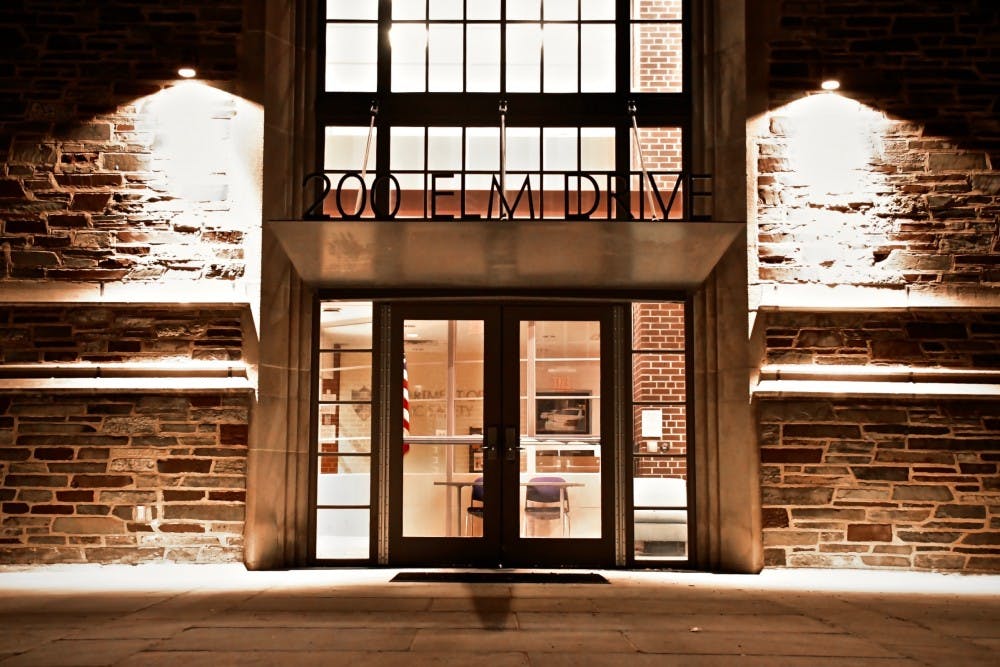If you have never locked yourself out of your dorm during your Princeton career, congratulations: you have been very on top of things. For those of us who have, we can all agree that making the hike to New South under all sorts of crazy weather conditions or, if the Service Point is closed, waiting for Department of Public Safety (DPS) officers to unlock your door while you stand outside it wrapped in a towel after showering is not a great experience.
Dorm lockouts occur at a much more frequent rate compared to lost proxes and are a major hindrance for both students and PSafe officers who have to make trips to student dorms. In fact, Michelle Brown, manager of Service Point located in New South, told me over email that “on average we distribute about 13 loaner cards and less than 5 replacement student cards per day. These numbers rise considerably during the first few days of each semester when students are returning from a break.”
Brown’s comments make it clear: It’s time to rethink the prox system.
I know the inconvenience of getting locked out of one’s room from experience.
The rain was pouring mercilessly on a gloomy September afternoon, and the gathering clouds foreshadowed my looming misfortune. On my way out of my dorm to class, I went over my belongings, making sure I had everything I needed: my phone was in my pocket — great — and I had my jacket and umbrella. Click. The heavy wooden dorm doors closed on me, and in my mind’s eye I saw my wallet, with my prox in it, sitting quietly on top of my desk.
I live in a single. As I stood there blaming my own carelessness, it became clear that there would be no friendly roommate who could open the door for me, no way to tick back the clock a minute so I could get a redo, and not even the prospect of late meal to tide me over.
The total time it took — going to New South to get a temporary prox, returning to my dorm to retrieve my prox, walking back to New South to return the temporary prox, and finally returning to my dorm — took 40 minutes. Luckily, I did not miss anything important, but my time could have been much better spent otherwise.
And there are much more bizarre prox loss stories than my own, which demonstrate the inconveniences caused by requiring a prox to enter your dorm room.

I spoke to Julia Chang ’24 about her experience being locked out of her room: “At one point in the beginning of the school semester, I forgot my prox card four times in one week and had to trek to PSafe twice.” One of these times was during the night of the tornado warning, Chang told me. “I was only wearing my sandals (i.e. as opposed to sneakers) in the rain as my hallmate had to walk me down with an umbrella.”
I also spoke to Jason Gu ’24, who told me about being locked out of his room numerous times during his first year here. “As a freshman, I locked myself out multiple times of my own room going to the bathroom or shower, as I wasn’t used to carrying a card to those places with me,” he said.
Gu then offered his opinion on whether proxes are necessary to enter one’s dorm room. “While some form of student identification is unarguably necessary for Princeton’s various facilities and buildings, the necessity of using a prox and having a specific door code to get into your own room, in my opinion, seems a little unnecessary.”
Certainly, given that access to our dorms already requires knowing the door lock PIN, proxes can feel redundant and more of an inconvenience than a safety measure. But it should be acknowledged that having the double-identification step provides an extra level of safety and measures against unwanted people getting into your room, which brings comfort to many students. Chang explained that although “the extra step could be a hassle,” she “likes her prox for security reasons.”

But removing the prox part of entering one’s dorm does not mean we must sacrifice the extra security that it can bring. There are many other methods that the University can implement that function more effectively than the current system, while bringing the same level of security.
For example, if Princeton wanted to go all out with catching up with current technology, they could implement fingerprint or face recognition technology for our doors as a PIN replacement. Or they could make the prox virtual, allowing it to be added to Apple Wallet. Another feasible alternative would be adding a QR Code on the room door to be scanned so students can log into their phone with NetID credentials. They can then open the door through their phone, using similar technology as the Nest x Yale Lock. And, if the University wants to retain the prox system, giving each student a smaller, hole-punched version of the prox that fits on the keychain could reduce the chance that the prox gets lost.
The variety of options the University could switch to demonstrates that the inconvenience students face from getting locked out of their rooms is unnecessary and should be left in the past.
Kelsey Ji is a sophomore from Cambridge, Mass. She can be reached at xingej@princeton.edu.








